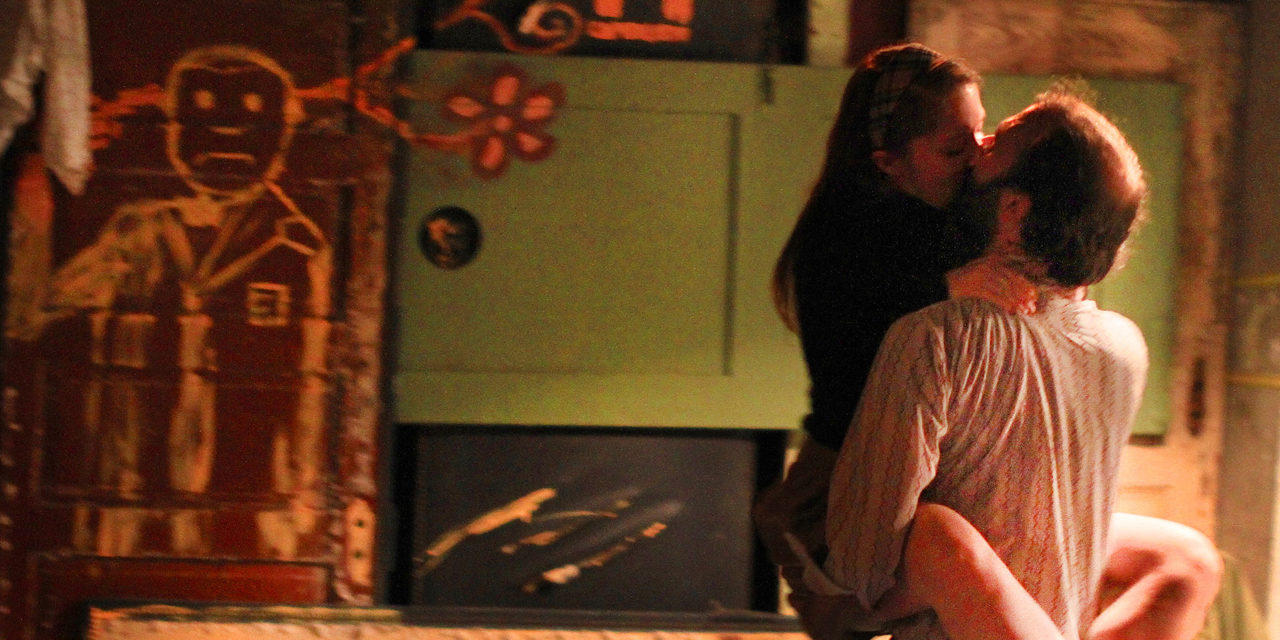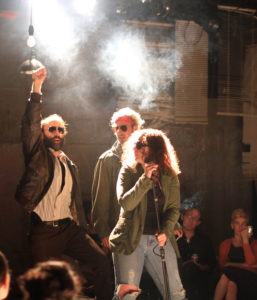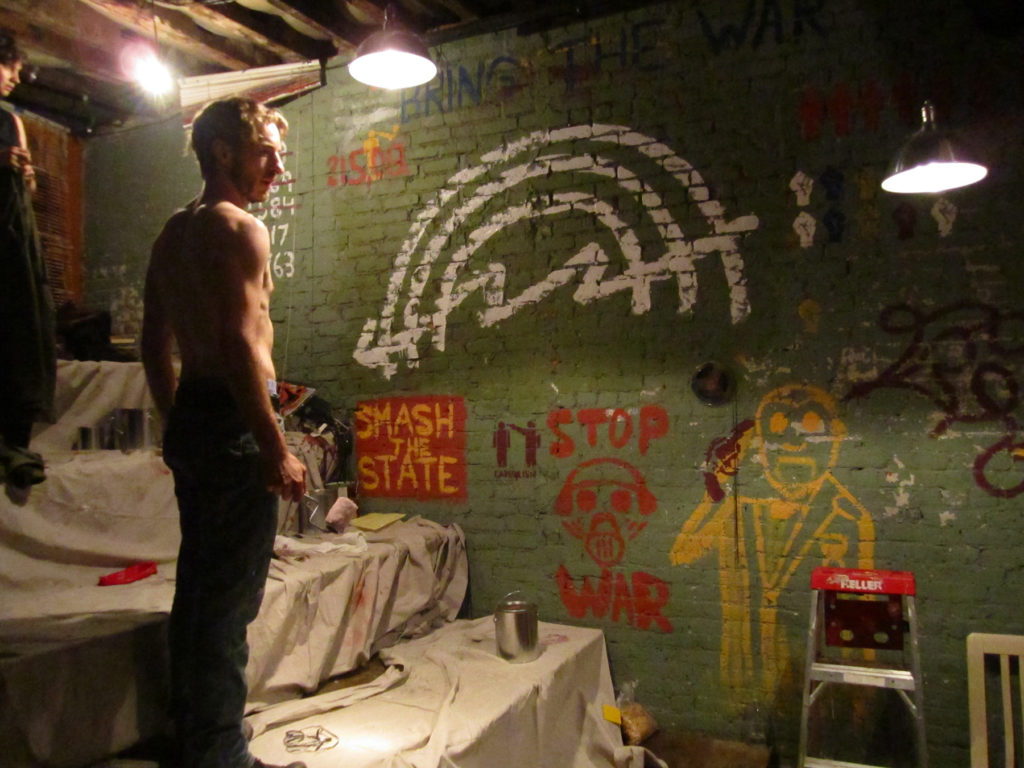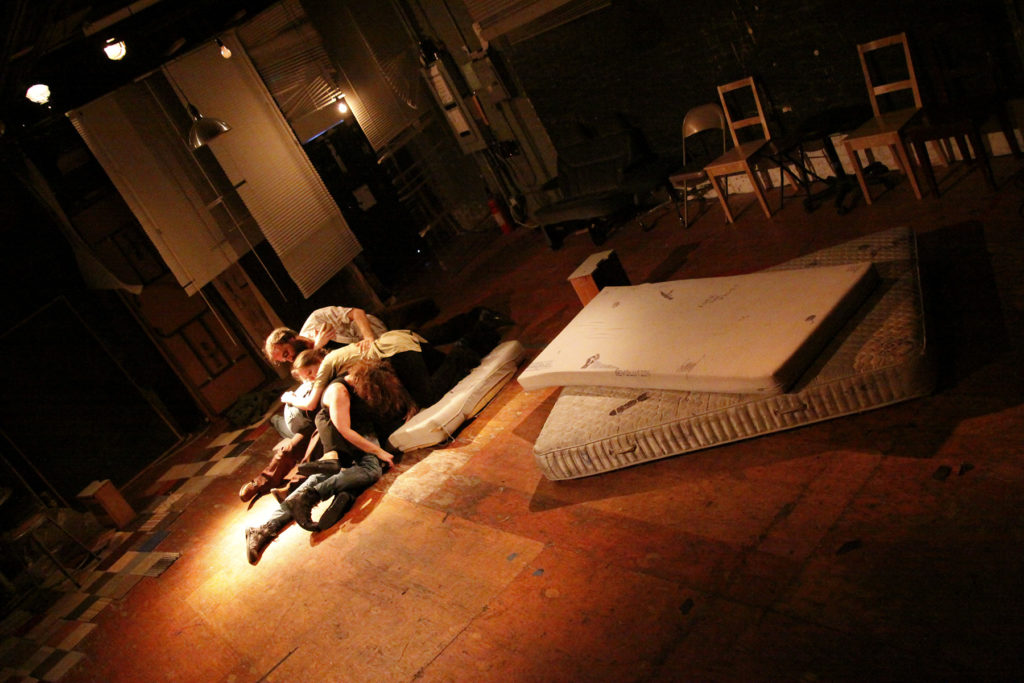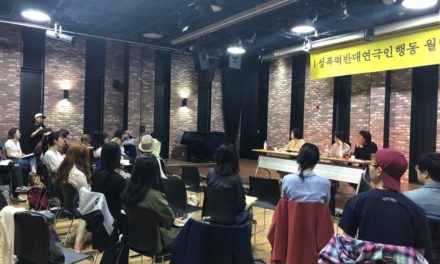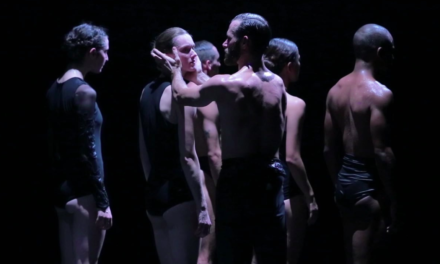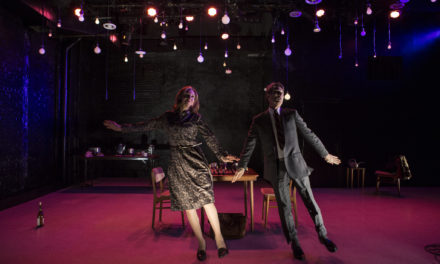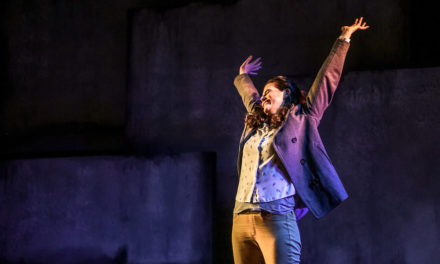Commitment is hard.
Even within the well-defined parameters of traditional monogamy, balancing the demands of passion and pragmatism is seldom a straightforward proposition. Staying faithful and true, whether to a lover or an ideal, takes sacrifice and dedication. In Home/Sick, the Assembly’s play about the Weather Underground’s (mis)adventures in insurrection, commitments are tested and contested, and when love isn’t merely tough it’s lethal.
Emerging from the 1969 uprisings on American college campuses in opposition to the Vietnam War, the Weather Underground Organization was a revolutionary group that sought the eradication of racism, imperialism, and capitalism, with the ultimate goal of overthrowing the US government. With that evil empire deposed, the hope was, the world’s oppressed peoples could be free. There would be no more private property, no more exploitation, discrimination, or war. Human relationships would cease to be poisoned by competition and fear, and life would at long last be beautiful.
If blood had to be shed en route to nirvana, so be it. As one of Home/Sick’s more zealous young revolutionaries puts it, “Doing nothing in a period of repressive violence is itself a form of violence.” The Weathermen are best known for a campaign of bombings they conducted in the 1970s to damage banks and government buildings, but the Assembly focuses on the nature of the violence members of the collective turned against each other and themselves for the sake of the greater good.
We are in a grimy basement hideout. The blinds are drawn. Countercultural touchstones and slogans are scrawled over everything from the walls to the mattresses piled on the floor: “There are many Vietnams,” “Fuck the Pigs!” “Look out Whitey! Black Power’s Gon’ Get Your Mama!” The muted post horn symbol from Thomas Pynchon’s The Crying of Lot 49, with its paranoiac resonances. One actor distributes to each audience member an index card, inviting us to finish the sentence “In my ideal America…” Our answers are collected once we’ve finished writing. Another actor sits on a stool with a guitar and addresses us, making conscientious eye contact with everyone in the intimate house. His manner is genial enough, but the environment gives the questions he asks us a vaguely censorious edge. “How many of you have ever attended a political rally?” “Do you think you have a voice in your government? Do you think the use of violence is ever justified?”
Soon the air is filled with the sounds of voices raised in righteous anger, composing manifestos aloud. The cast hurtles through the years the Weathermen were active, their takeover of Students for a Democratic Society, the Chicago Days of Rage, the accidental explosion of a Greenwich Village townhouse the group was sheltering in while assembling a bomb that exploded prematurely, killing three of them. But the most compelling scene is an extended group interrogation in the style of a Maoist struggle session. David, a recent recruit with a suspicious penchant for privacy, is eviscerated for isolating himself. He is cocky, bourgeois, individualist. His reactionary tendencies are most problematically pronounced in the realm of sex. He has formed an inappropriately exclusive attachment to Cathy, another member of the collective. “No private property” extends to love objects as well. Monogamous relationships are counterrevolutionary. The decision to split Cathy and David might be the most brutal action we witness. The group’s polyamory policy is intended to be liberating, but if it is difficult to love one person well it is that much harder to love two or three, let alone the whole world. Love on such a scale is heroic, but like the Weathermen’s dreams of a society free from domination, perhaps simply too good to be true. These scarred, imperfect, occasionally venal people don’t stand any more chance of realizing the ideal than any of us, and if love is an all or nothing affair, then failure means losing everything over and over again, resigning oneself to a life of continuous disappointment and dissatisfaction. That is the tragedy of revolution.
Having set out to make a piece that avoids naively romanticizing the Weathermen, the Assembly succeeds in conveying the great costs of living for beauty, the physical and emotional comforts that must be forsaken, the various “homes” that must be abandoned or disavowed. Nietzsche called homelessness the “distinction and honor” of modern man. “We children of the future,” he wrote, “how could we be at home in the present? We are unfavourable to all ideals which could make us feel at home in this frail, broken-down, transition period; and as regards the ‘realities’ thereof, we do not believe in their endurance.” Throughout Home/Sick, we see members of the collective making furtive calls to mom or dad back home, sometimes trying to justify the revolutionary lifestyle, sometimes asking for money or following up on a medical issue. They know that home, or America, is sick, is a sickness, but they get homesick all the same. They are engaged in building a future they won’t be ashamed to feel nostalgic for.
The performance ends with the cast taking turns reading what we in the audience have written on our index cards about our “ideal Americas,” an exercise which, at the performance I attended, revealed our own interestingly inconsistent attitudes towards violence. More than a few responses followed the form of “In my ideal America everyone is treated with love/respect/dignity…and Donald Trump is dead.” The Assembly first staged Home/Sick in 2011 and one can’t help but wonder if and how the Trump administration’s reign of nonsense and terror has contributed to the radicalization of young Americans since then, and if and how they will make their rage felt in the future.
Home/Sick
The Assembly. Directed by Jess Chayes
Devised and written collectively by Stephen Aubrey, Edward Bauer, Ben Beckley, Nick Benacerraf, Kate Benson, Marianne Broome, Jess Chayes, Anna Abhau Elliott, Luke Harlan, and Emily Louise Perkins
March 11-25, 2017
JACK
Brooklyn, New York
This post was written by the author in their personal capacity.The opinions expressed in this article are the author’s own and do not reflect the view of The Theatre Times, their staff or collaborators.
This post was written by Jessica Rizzo.
The views expressed here belong to the author and do not necessarily reflect our views and opinions.

